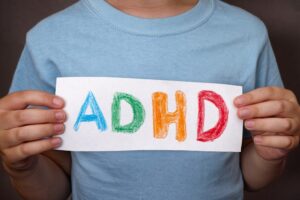In the intricate tapestry of mental health, ADHD stands as a prominent thread, affecting millions worldwide with its unique challenges and complexities. However, when woven together with the presence of alcohol abuse, the fabric of one’s well-being becomes even more intricate and fragile. This blog endeavors to explore the intersection of ADHD and alcohol abuse, shedding light on the nuanced struggles individuals face and offering guidance toward a path of understanding and healing.
Contents
How Does Alcohol Affect Someone With ADHD?
 Alcohol can affect individuals with ADHD in several ways, both in the short term and the long term:
Alcohol can affect individuals with ADHD in several ways, both in the short term and the long term:
- Attention and Focus
ADHD is characterized by difficulties in sustaining attention and focusing on tasks. Alcohol further impairs cognitive function. And, making it even harder for individuals with ADHD to concentrate and stay on track.
- Emotional Regulation
Many individuals with ADHD also experience challenges in regulating their emotions. Alcohol can intensify mood swings and emotional instability. Hence, leading to heightened impulsivity and potential conflicts in relationships.
- Sleep Disturbances
Both ADHD and alcohol can disrupt sleep patterns. While alcohol may initially induce drowsiness, it often leads to fragmented and poor-quality sleep, exacerbating symptoms of ADHD such as daytime fatigue and difficulty concentrating.
- Comorbidity and Self-Medication
There is a high rate of comorbidity between ADHD and substance use disorders, including alcohol abuse. Some individuals with ADHD may turn to alcohol as a form of self-medication to alleviate symptoms such as restlessness, boredom, or low self-esteem.
- Long-Term Health Effects
Chronic alcohol abuse can have serious consequences for physical and mental health, exacerbating existing symptoms of ADHD and increasing the risk of comorbid conditions such as depression, anxiety, and liver disease.
It’s essential for individuals with ADHD to be aware of how alcohol affects them personally and to seek support if they find themselves struggling with alcohol use. Professional help can be invaluable in addressing both ADHD and alcohol-related concerns.
Why Is Life So Hard For People With ADHD And Alcohol Abuse?
Life can be exceptionally challenging for individuals grappling with both ADHD and alcohol abuse due to a combination of factors:
1. Difficulty in Self-Regulation
Individuals with ADHD often struggle with regulating their emotions, attention, and behavior. Alcohol further disrupts self-regulation abilities. Thus, making it challenging to manage impulses, control emotions, and maintain focus on long-term goals.
2. Social and Relationship Challenges
ADHD symptoms, such as impulsivity, forgetfulness, and disorganization, can strain relationships with family, friends, and colleagues. Alcohol abuse can exacerbate these challenges, leading to conflicts, isolation, and a breakdown in social support networks.
3. Employment and Academic Difficulties
The symptoms of ADHD, such as inattention and poor time management, can interfere with academic performance and work productivity. Alcohol abuse can compound these challenges, leading to absenteeism, reduced performance, and even job loss or academic failure.
4. Health Risks and Co-Occurring Conditions
Both ADHD and alcohol abuse are associated with an increased risk of various health problems, including liver disease, cardiovascular issues, and mental health disorders such as depression and anxiety.
5. Stigma and Shame
There is often stigma surrounding both ADHD and alcohol abuse, which can lead to feelings of shame, guilt, and low self-esteem. This can further exacerbate mental health issues and hinder individuals from seeking help and support.
6. Cyclical Nature of Addiction
Addiction is a chronic relapsing condition characterized by cycles of cravings, substance use, and withdrawal. Individuals with ADHD and alcohol abuse may find themselves trapped in this cycle, struggling to break free despite their best efforts.
Despite these challenges, it’s crucial to recognize that recovery is possible with the right support, treatment, and resources. Seeking help from healthcare professionals, therapists, support groups, and loved ones can provide individuals with the tools and encouragement needed.
Does Quitting Alcohol Improve ADHD?
 Quitting alcohol can potentially have positive effects on ADHD symptoms for several reasons:
Quitting alcohol can potentially have positive effects on ADHD symptoms for several reasons:
- Improved Cognitive Function
Alcohol impairs cognitive function, including attention, memory, and executive functioning, which are already areas of difficulty for individuals with ADHD. By abstaining from alcohol, individuals may experience improvements in these cognitive domains.
- Stabilized Mood and Emotions
Alcohol can exacerbate mood swings and emotional dysregulation, which are common symptoms of ADHD. Quitting alcohol can help stabilize mood and emotions, reducing irritability, impulsivity, and emotional volatility.
- Enhanced Sleep Quality
Alcohol disrupts sleep patterns and can contribute to insomnia and fragmented sleep. This can worsen ADHD symptoms such as daytime fatigue and difficulty concentrating. By eliminating alcohol, individuals may experience improved sleep quality. Hence, leading to better daytime functioning and cognitive performance.
- Reduced Impulsivity and Risk-Taking
Alcohol consumption often leads to impulsive behaviors and risk-taking, which can be particularly problematic for individuals with ADHD. Quitting alcohol can help reduce impulsivity and reckless decision-making, leading to safer and more controlled behavior.
- Better Medication Response
Many individuals with ADHD are prescribed medication to manage symptoms. Alcohol can interact negatively with ADHD medications, reducing their effectiveness or increasing the risk of side effects. By abstaining from alcohol, individuals may experience better responses to medication and improved symptom management.
It’s important to note that the extent to which quitting alcohol improves ADHD symptoms can vary. Seeking professional guidance and support can be beneficial for individuals with ADHD and alcohol abuse.
How To Manage ADHD Alcohol Abuse?
 Managing ADHD and alcohol abuse requires a comprehensive approach that addresses both conditions simultaneously. Here are some strategies that can help individuals effectively manage ADHD and alcohol abuse:
Managing ADHD and alcohol abuse requires a comprehensive approach that addresses both conditions simultaneously. Here are some strategies that can help individuals effectively manage ADHD and alcohol abuse:
- Seek Professional Help
Consult with healthcare professionals who specialize in treating ADHD and substance use disorders. They can provide a thorough evaluation, diagnosis, and personalized treatment plan tailored to your specific needs.
- Educate Yourself
Learn as much as you can about ADHD and alcohol abuse, including how they interact and impact each other. Understanding the relationship between these conditions can empower you to make informed decisions and take proactive steps toward recovery.
- Medication Management
If appropriate, consider medication for managing ADHD symptoms. Work closely with a psychiatrist or healthcare provider to find the right medication and dosage that effectively addresses ADHD symptoms without exacerbating alcohol abuse.
- Therapy and Counseling
Participate in therapy or counseling, such as cognitive-behavioral therapy (CBT). This can help you develop coping skills, improve self-regulation, and address underlying issues contributing to alcohol abuse.
- Support Groups
Joining support groups, such as Alcoholics Anonymous (AA) or ADHD support groups, can provide a sense of community, understanding, and encouragement from others who are facing similar challenges.
- Develop Coping Strategies
Identify triggers and develop healthy coping strategies to manage stress, boredom, impulsivity, and other factors that may contribute to alcohol abuse. This may include mindfulness techniques, relaxation exercises, or engaging in hobbies and activities that provide fulfillment and distraction.
- Establish Structure and Routine
Establishing a structured daily routine can help manage ADHD symptoms and reduce the likelihood of impulsive behaviors, including alcohol abuse. Set clear goals, prioritize tasks, and create a schedule that incorporates healthy habits, such as regular exercise, adequate sleep, and nutritious meals.
- Avoid Triggers
Identify and avoid situations, environments, and social circles that may trigger alcohol cravings or exacerbate ADHD symptoms. Surround yourself with supportive people who understand your challenges and respect your efforts to maintain sobriety.
- Practice Self-Care
Prioritize self-care activities that promote physical, mental, and emotional well-being. This may include practicing relaxation techniques, engaging in enjoyable activities, and maintaining healthy relationships.
Managing ADHD and alcohol abuse is a journey that requires patience, perseverance, and ongoing commitment. By taking proactive steps, seeking support, and addressing both conditions holistically, individuals can work towards achieving sobriety and improving overall quality of life.
Conclusion
In conclusion, managing both ADHD and alcohol abuse is a complex journey that requires patience, perseverance, and a multifaceted approach. By seeking professional help, educating oneself, building a support network, and implementing healthy coping strategies, individuals can take proactive steps towards recovery and well-being.
It’s crucial to remember that progress may not always be linear. And setbacks are a natural part of the process. With dedication, self-awareness, and a commitment to self-improvement, individuals can navigate the challenges of ADHD and alcohol abuse, leading to a happier, healthier life.
